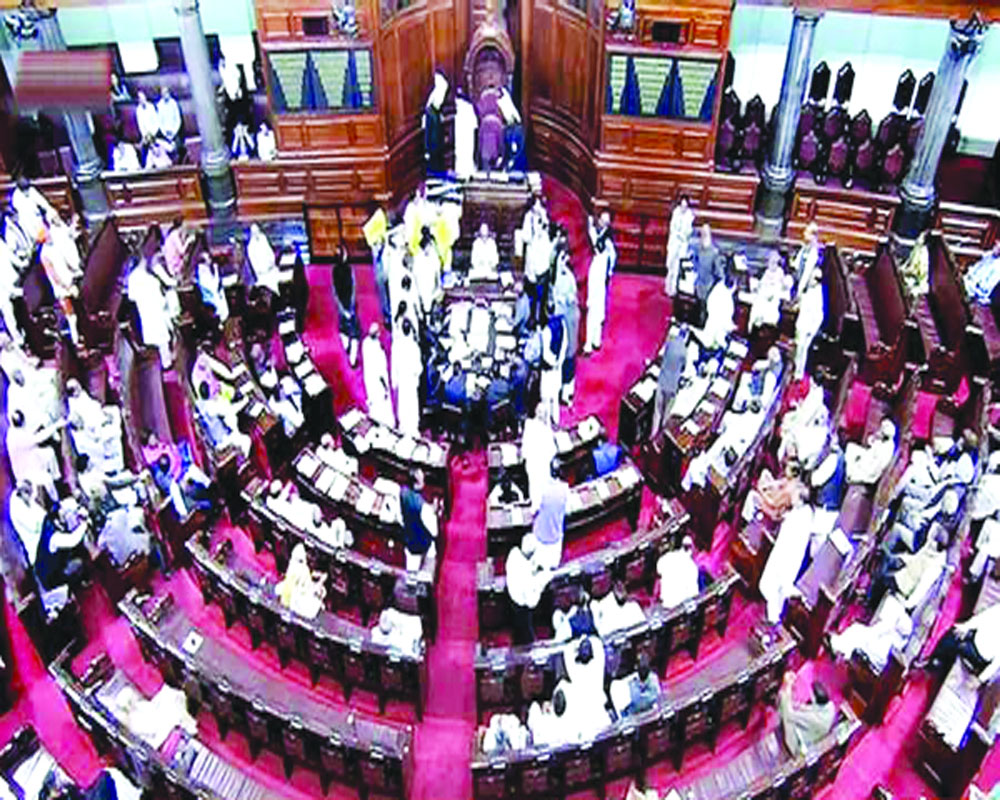Constructive criticism and not blind agitation is the role of an effective Opposition in a parliamentary democracy. Sadly, a counter view is missing in the 17th Lok Sabha making PM Modi look even more larger than life
The first session of the 17th Lok Sabha has begun well without much disturbance with even first-timers getting an opportunity to make their maiden speeches. While the 16th Lok Sabha saw a divided and fractured Opposition, the current one has so far seen only feeble voices with no effort to speak unitedly. This could be because the Opposition is yet to recover from the blow it has received in the elections.
While any democracy needs a stable government, it also needs a credible and strong Opposition. Its main role is to question the government of the day and hold it accountable to the public. It is the Opposition that puts rein on the power of the government of the day and checks it. It is indeed a well-established fact that political parties with massive majorities and weak opposition have adversely impacted crucial issues.
However, when Rajiv Gandhi came to power after the assassination of Indira Gandhi in 1984 with a brute majority of 415 seats, the Opposition was weak in numbers but not silent. A half a dozen leaders from various Opposition parties, including Madhu Dandavate, Somnath Chatterjee, Inderjit Gupta, Unnikrishnan and Jaipal Reddy, had effectively exposed the Bofors gun deal scam, which really cost Rajiv Gandhi his government. Prior to that, when Indira Gandhi lost the elections in 1977, she had fielded vocal leaders like C M Stephan. Unfortunately, the current Opposition does not have many such leaders who could hold forth in Parliament and outside. This is indeed the real concern. In a blog post titled, The frightening and scary scenario of India’s Opposition, BJP leader Arun Jaitley, calling the Opposition camp “fractured,” pointed out that they have no agreement on either a leader or programme and the common point between them is just to “get rid of one person (Modi).” By failing to unite, the Opposition had gifted a whopping 352 seats to the BJP in 2019.
The muted voice of the Opposition is also linked to the phenomenal growth of the BJP emerging as a pan-national party in the past decade or so. That is primarily because of the Congress’ inability to function as an effective opposition. The grand old party is still living in its past glory without realising that the voter profile has changed and the party has lost its connect with the new voters. Rahul Gandhi, though younger than Prime Minister Modi, is unable to attract his youthful peers. The Congress is yet to introspect what went wrong in the 2019 polls or make efforts to reinvent itself. On the contrary, Rahul Gandhi’s resignation has plunged the party into a leadership crisis from which it is yet to come out. The Congress is yet to build up the party at the grassroot level to match the BJP. Only boycotting Parliament and hitting the streets are not enough. Congressmen need to connect with the masses and educate them on issues that could set the agenda for the next round of Lok Sabha elections. Above all, even after the defeat in the polls, the Opposition remains divided as is evident from the way the Bahujan Samaj Party (BSP) leader Mayawati broke her alliance with the Samajwadi Party (SP) recently. The Congress –JD (S) coalition is crumbling in Karnataka. Also many Opposition leaders are vulnerable, facing several court cases and are so caught up in their survival that they can hardly prepare an alternative blueprint of governance to go the people with.
The second reason for the current state of affairs is the gradual demise of the Left parties. From ruling in three States earlier, the Left parties have been practically decimated in its strongholds of Kerala, West Bengal and Tripura. The comrades have long been split between a highly intellectual circle and a rural movement with the result they are gradually losing their hold on both. They also have failed to re-orient themselves to the current day requirements of the voters without realising that chanting secularism and class struggle no more attract them.
As for the rest of the parties like the SP, BSP, RJD, Trinamool Congress, NCP, DMK, JD (S), Shiv Sena, TRS, TDP and most Northeastern regional parties, they are led by regional satraps, who believe in family rule and have no worldview. The lack of opposition is indeed a great tragedy in India today and a worrisome factor in a democracy. The Congress had it going for six decades dealing with a weak Opposition. A complete decimation of Opposition parties is not good for the country. Constructive criticism and not blind agitation is the role of an effective Opposition in a parliamentary democracy.
It is quite clear that political power equations have shifted heavily towards the BJP. Right now Prime Minister Modi is enjoying a larger than life image like Nehru once did or Indira Gandhi. Time has come now for the Opposition to rise.
(The writer is a senior political commentator and syndicated columnist)


























